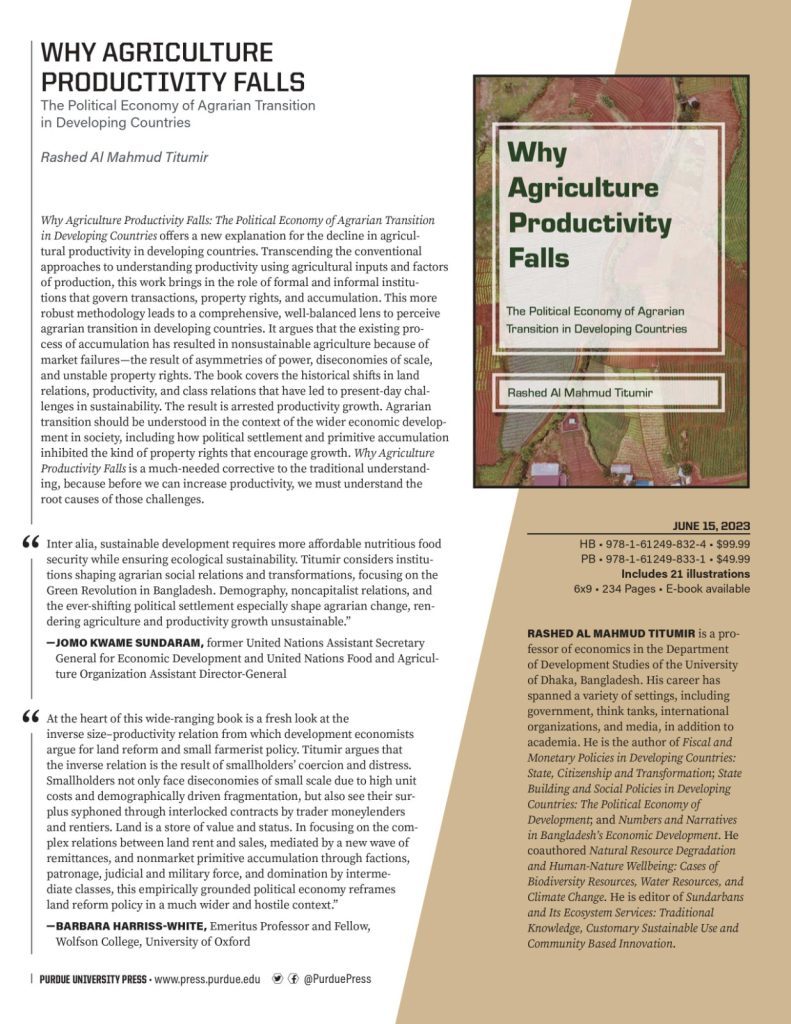NATO geopolitical strategy has now joined the ‘coalition’ of Western geoeconomic forces accelerating planetary heating,…
Why Agriculture Productivity Falls: The political economy of agrarian transition in developing countries Rashed Al Mahmud Titumir

ISBN
9781612498355
Publication Date
Summer 6-15-2023
Publisher
Purdue University Press
About the Book
Why Agriculture Productivity Falls: The Political Economy of Agrarian Transition in Developing Countries offers a new explanation for the decline in agricultural productivity in developing countries. Transcending the conventional approaches to understanding productivity using agricultural inputs and factors of production, this work brings in the role of formal and informal institutions that govern transactions, property rights, and accumulation. This more robust methodology leads to a comprehensive, well-balanced lens to perceive agrarian transition in developing countries. It argues that the existing process of accumulation has resulted in nonsustainable agriculture because of market failures—the result of asymmetries of power, diseconomies of scale, and unstable property rights. The book covers the historical shifts in land relations, productivity, and class relations that have led to present-day challenges in sustainability. The result is arrested productivity growth. Agrarian transition should be understood in the context of the wider economic development in society, including how political settlement and primitive accumulation inhibited the kind of property rights that encourage growth. Why Agriculture Productivity Falls is a much-needed corrective to the traditional understanding, because before we can increase productivity, we must understand the root causes of those challenges.
About the Author
Dr. Rashed Al Mahmud Titumir is a Professor of Economics at the Department of Development Studies of the University of Dhaka. He is currently holding the charge of the Chairman of the Department. He has worked in diverse constituencies, namely, academia, governments, think-tanks, international organisations and media. He is engaged in research for pioneering approaches to developmental public policies and innovative solutions on the ground. He has led numerous projects for diverse organisations including governments, development partners and international organisations at home and abroad.
This book is freely downloadable, thanks to an award by the Knowledge Unlatched, from the publisher’s website.
